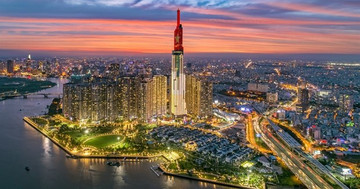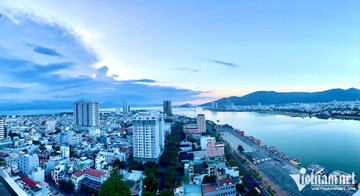- © Copyright of Vietnamnet Global.
- Tel: 024 3772 7988 Fax: (024) 37722734
- Email: evnn@vietnamnet.vn
real estate market
Update news real estate market
Gov’t removes roadblocks for real estate market, firms expect drastic action
The Government's latest real estate legislation went into effect on March 11 aiming to reinvigorate the sluggish realty market, which has been mired in a severe imbalance of supply and demand.
Taiwanese investors’ demand for industrial property expected to be high: Savills
Investors from Taiwan (China) are particularly keen on Viet Nam’s industrial, office and retail real estate.
Vietnam's real estate market won’t recover until late 2024
Despite the Government’s efforts to remove challenges facing the real estate market, it won’t prosper until the end of next year, experts have warned.
VN among Top 5 real estate investment destinations of Singapore's super-rich
Vietnam is one of the top five destinations chosen by Singapore's super-rich (UHNWI) for real estate investment, along with Australia, India, Hong Kong and China, according to The Wealth Report 2023, released worldwide by Knight Frank company.
Nearly 1,900 real estate firms leave market: report
In the first two months of the year, 1,895 real estate units left the market, according to the General Statistics Office (GSO).
Vietnam among top five destinations for Singaporean real estate investors
Vietnam is among the top five destinations selected by Ultra High Net Worth Individuals (UHNWI) in Singapore for their real estate investment plans, according to the Wealth Report 2023 released by Knight Frank.
Real estate market cools, no signs of warming up in 2023
Sellers cannot sell products and take back their investment capital; many people can't buy because of limited financial capability; and the state has failed to collect tax and land-use fees. Such is the current state of the property market.
Ministry denies stopping VND 110 trillion credit package
Deputy Minister of Construction Nguyen Van Sinh told VietNamNet that the VND110 trillion credit package is awaiting the government’s decision, and that the Ministry of Construction (MOC) has not received any report about the stopping of the package.
Vietnamese real estate remain attractive to foreign investors
The Vietnamese real estate market has remained attractive to foreign investors and investment funds despite difficulties countering domestic firms, according to insiders.
Real estate market: developers complain, home buyers recite woes
The property market is facing many complaints from developers. In one case, the developer has completed real estate procedures but is still waiting for a license. The developer is worried as project implementation is nearing the deadline.
Taxing second homes must be studied carefully: experts
The policy of taxing second homes should be introduced at an appropriate point in time with a carefully-studied roadmap and regime.
Around $370 million in FDI inflows flood the real estate sector
Foreign capital is pouring swiftly into the real estate market despite the depressing internal environment.
Vietnam's real estate market ponders how to get out of slump
A shortage of affordable housing products, a high number of outstanding loans, and many bankrupt real estate firms are some of the problems mentioned at the recent national conference on the Vietnamese real estate market.
Real estate bailout eyes credit recovery
The Vietnamese government and banks have developed a strategy to improve the credit status of Vietnamese real estate businesses by offering a $5 billion loan package.
Real estate credit limit should be based on real accommodation demand
Offering more credit to the real estate sector has been likened to pumping a well-inflated balloon.
Vietnam's real estate market to recover by Q3: experts
With the Government’s drastic measures to address problems related to legal bottlenecks, lack of capital access, and challenges in corporate bonds, the real estate market is expected to recover from the third quarter, experts have said.
Real estate bailout “perilous” for system
As more than $52 billion is due to banks and bondholders from real estate corporations, not to mention the requirement for additional loans, experts say a purge in the real estate market is unavoidable.
Many Vietnamese need savings of at least 50 years to buy a house
With an average monthly income of VND7.5 million, Vietnamese need to save money for 50 years to be able to buy an apartment with two bedrooms.
How has real estate credit been performing in the last 10 years?
The credit growth rate of the banking system in the last 10 years has slowed down compared with the previous decade, hovering around 14 percent per annum in 2012-2021 instead of 30 percent in 2001-2010.
HCM City high-end apartments remain empty despite steep fall in rents
While rents for affordable apartments remain steady in HCM City, they have fallen sharply and continue to do so in the case of high-end apartments.



















